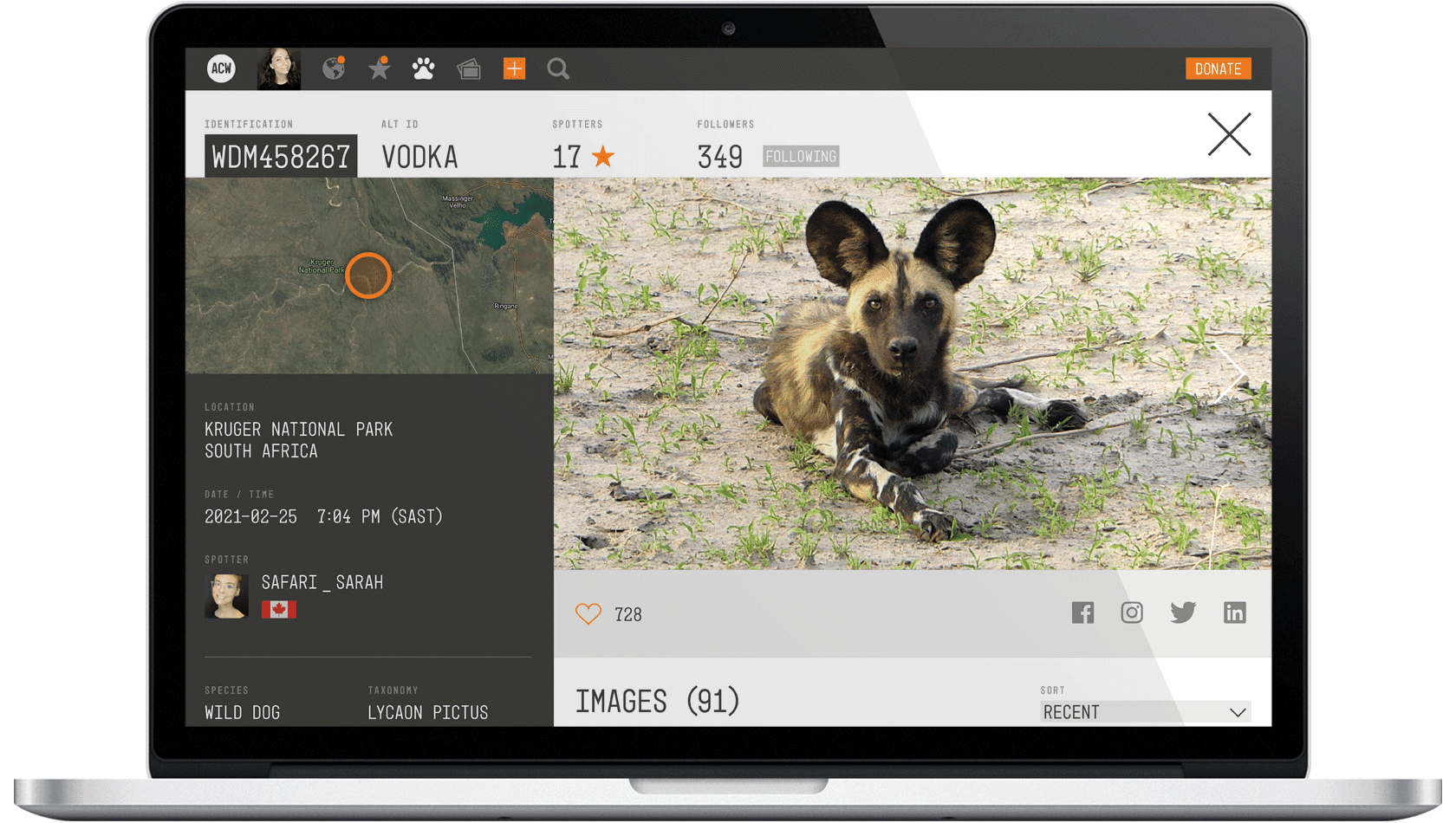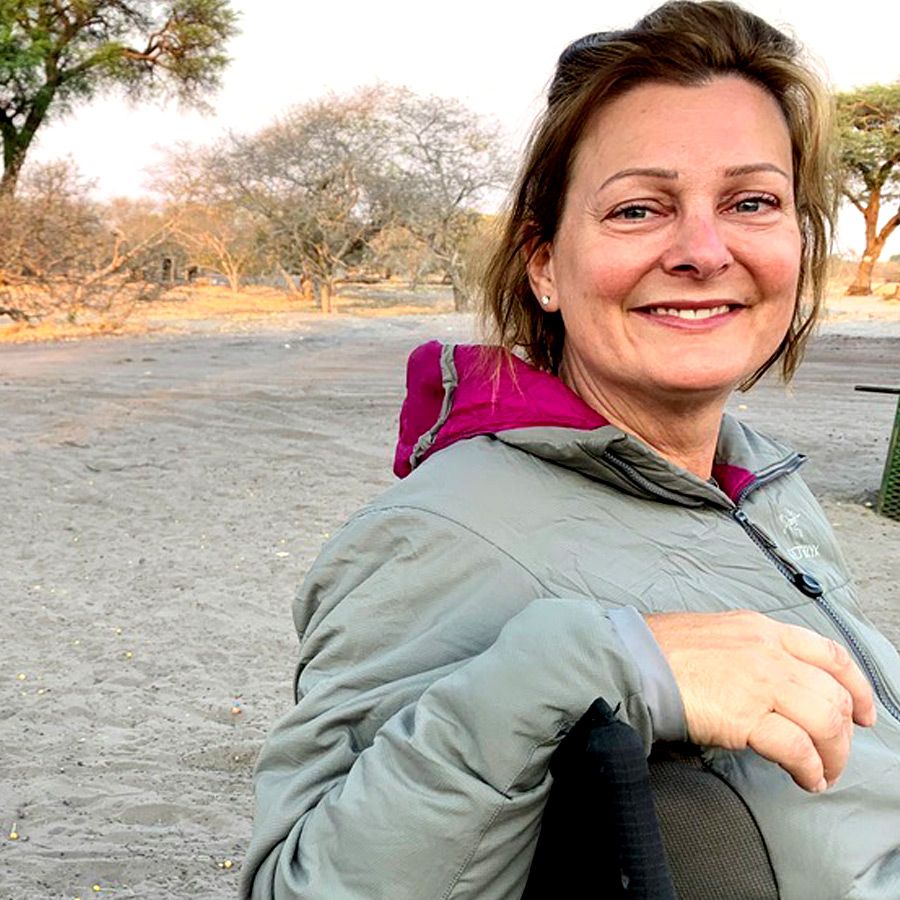Get Involved

Become a Citizen Scientist
If you live in Africa, or have had the good fortune to visit Africa, and have seen and photographed its magnificent carnivores in the wild, you've gone a long way toward becoming a citizen scientist. The next step is to upload your pictures and provide some basic information. That's the fuel we use to power the technologies that deliver life-changing data to the conservationists who are out on the front lines, working every day to save these animals and their habitats.
Become a Member
No pictures to upload? No worries! You can help ACW by becoming a member. Your membership alone adds weight to our efforts, but you can help even more by spreading the word about our mission, our efforts, and our progress. Conservation is a team effort!
Become a Volunteer
Do you have expertise in African carnivore individual identification and time on your hands? You can donate your skills to help us deliver accurately curated images to our conservation community.
Make a Donation
Technology can be a major expense for conservation organizations. Please consider making a donation to help us to continue to offer valuable technology like ACW to wildlife conservationists for free.
Say hello to Cheryl Stafford.

"Citizen science is love."
Based in Vancouver, Canada, Cheryl Stafford is an executive coach and leadership consultant who was bitten by the travel bug when she earned a trip to Disneyland as a teenager. She’s since visited more than 30 countries, including many in Africa. And she’s also a citizen scientist.
You’ve been all over the world, and to Africa more than once. Seems like it’s a favorite destination?
Absolutely. My first trip to Africa was my honeymoon. My husband was actually born and raised in Namibia, and we wanted to kick things off together with an adventure. His father had been a tour guide, so with his help we were able to arrange a privately guided two-week camping safari. Our most recent trip was self-guided truck-camping, and among other things, we had elephants walking right through our camp. I get goosebumps just talking about our experiences there!
This might be an obvious question, but what’s the biggest draw when it comes to Africa?
It’s everything. The people are amazing, and of course, the natural environment and the animals! To be in close proximity to them in their own habitat is incredibly powerful, and hugely educational. I think we all need to be reminded that we share the earth with these creatures. We need to understand their immense value. We’re taking over more and more of the planet, and we need to learn how to respect and protect what’s left of their world. Being with them, in their environment, is a reminder that nature only works because it’s symbiotic. I don’t think we want to find out what might eventually happen to us if more of these species begin to disappear.
You’re now a citizen scientist. What does that mean to you?
Citizen science is an opportunity. It allows me to do something positive for the animals who have given me so much, just by existing. Uploading photos that conservationists can use to help protect and preserve the things I care about is my way to offset the terrible photos of trophy hunters posing with their kills. Citizen science is love. What’s the most personally rewarding aspect of fueling technologies like ACW?
A single photo is a moment. Connecting two or more photos of the same animal taken by different people in different places at different times creates a story. And that story helps to protect and preserve. It’s like those photos come alive, and that’s powerful. Just to be part of that gives me an incredible sense of joy.
Any further thoughts you’d like to share with future citizen scientists
If you love nature, love being in it, and love being part of it, you know to tread lightly. It’s wonderful to be able to observe and experience something beyond your own day-to-day world. But you’ve got to respect it in order to protect it. If you can contribute to a worthy project like African Carnivore Wildbook, please do it. It’s a chance to give back, a chance to help the people who are on the front lines of conservation.
The natural world is fragile. If it ends naturally, that’s one thing. If it ends because of human activity, that’s on all of us.